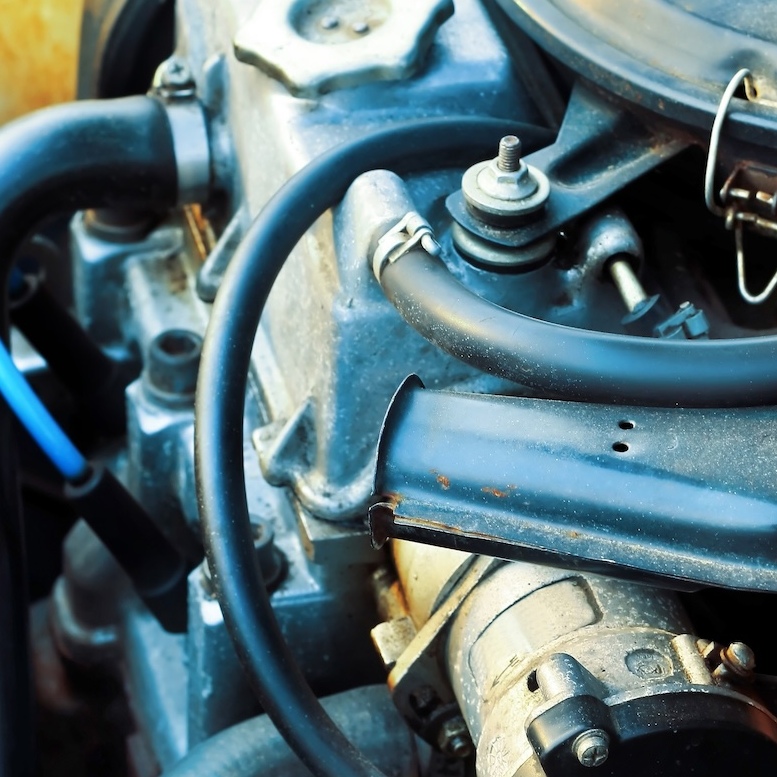
Build Brake Line Awareness
There are more cars on the road today than ever before. And it seems like the driving style of people is getting more aggressive, careless, and dangerous. With that in mind, you want to keep your car’s brake system in top condition. This includes the brake pads, brake cylinder, master cylinder, calipers, and brake line.
How does the brake system on a car work?
All of the components we mentioned, and a few others, have an important role in how your car stops when the brakes are applied. The general working process includes the following steps:
- When pressure is applied to the brake pedal, hydraulic fluid is transmitted to the caliber cylinder.
- A piston is depressed in the master brake cylinder that forces fluid through the brake pipes and eventually through the brake lines.
- The fluid then disperses to caliber cylinders to each wheel, filling them, which then forces the pistons out so they then apply the brakes.
- Fluid pressure is then distributed around the system.
- The combined surface of all the slave pistons is larger than that of the master cylinder piston.
- Subsequently, the master piston travels and moves the caliber pistons a small fraction of an inch needed for the brakes to be applied.
- This system allows a force to be applied by the brakes.
How important is the brake line?
From all those steps, and there are more if we were to get down to the exact details, one component was only mentioned once: the brake line. However, it is an extremely important component and without it, the entire brake system could fail.
How does the brake line work?
The brake line is a thin, flexible tube that transfers the pressure from the master cylinder to the wheel cylinders, and then onto the brake calipers are each wheel. A brake line may be rubber or a rubber/synthetic combination.
How common is brake line failure?
With all of the components and the entire process, is brake line failure that common? There are movies and television shows where somebody cuts the brake line on a car and then the next person to drive the car comes to an exciting stop or wrecks the car.
If you’ve ever applied pressure on your brakes they didn’t respond, you know the terrifying feeling. Fortunately, cutting the brake line is for dramatics, and in real life, brake line failure isn’t that common. Actually, only about 5% of all car crashes are linked to failure of the brake line, that is approximately 300,000 crashes annually.
How do I know if I broke a brake line?
There are a couple of ways to know if your car’s brake lines are broken. One is visibility, but not a way that most drivers won’t notice if you don’t do a visual check of your car before getting in. That would be a puddle of reddish fluid under your car at any of the wheels or under the engine compartment.
And then there is the physical indicator that one of the components of your brake system isn’t working, including the possibility of the brake line being broken. As you press on the brake pedal, if it feels soft or spongy, this is an indication that there is air in the brake system, coming through the brake line.
Can I fix my own brake lines?
If you’re a ‘driveway’ or ‘shade tree’ mechanic, somebody who is extremely familiar with the mechanics of a car, and you have all the equipment and tools needed, yes, you can replace your own brake lines. But repairing them isn’t recommended unless it is done by a professional mechanic. A mechanic that is experienced and trained, may be able to splice the broken brake line with a new piece.
How long does it take to replace the brake line?
The brake line is routed differently on all vehicles, and a professional mechanic who has all the proper equipment and tools can typically replace brake lines within two hours or less. Repairing the brake line with the splicing method can typically be done within two hours as well.
How much does it cost to fix brake lines?
The cost of a brake line repair or replacement job can vary between garages and depending on the year, make, and model of the car. If the brake line is the only problem, the cost is typically under $500.00. However, a mechanic will inspect the entire brake system and if they find other issues, that cost could increase the cost upwards of $1,000.
In Conclusion – Bring It To A Halt!
If there is anything you’re going to neglect on your car, it should never be the brake system, including the brake lines! Keeping you, your family, and other passengers, as well as those around you, a healthy brake system is extremely important. If you need brake line repair in Atascadero, CA, please give us a call now at 805-466-3236.
